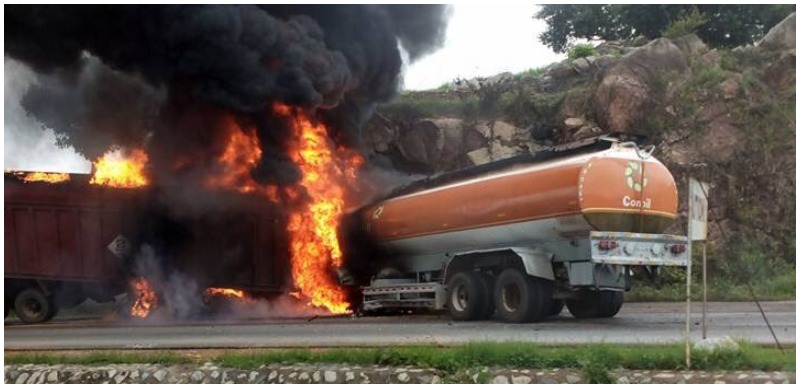The Federal Fire Service, Gombe State Command, on Wednesday, warned residents against the life-threatening practice of scooping fuel at accident scenes, following a string of tanker crashes in the state.
Speaking on the incidents, the State Controller of Fire, Deputy Controller Suleiman Mohammed, said three tanker-related incidents were recorded within the first nine days of September, stressing that officers and men of the Command responded swiftly to the latest crash, preventing a major disaster.
“The quick intervention of our personnel ensured that the truck was safely secured and moved to Gombe. Without that response, we could have been reporting a national tragedy.
“The first occurred on September 2 at the Railway Crossing along the Gombe–Bajoga Road, a few meters from the Gombe Graveyard. On September 5, another collision was reported along the Gombe–Biu Road, while the most recent happened on September 9 along the Gombe–Kano Road near Bozonshilwa District in Dukku Local Government Area”, he said.
While strongly cautioning residents against rushing to scoop fuel whenever such accidents occur added, “Scooping fuel is a very dangerous act. It puts lives, property, and entire communities at risk. We urge members of the public to stay away from accident scenes and allow trained personnel to do their work.”
He also appealed for more caution on the highways, stressing the importance of safety and prevention.
“Our collective goal is to build a fire-resilient society. That responsibility rests not only with the Fire Service but with every citizen who must avoid risky behaviour,” he added.
Federal Government, through the Nigerian Midstream and Downstream Petroleum Regulatory Authority, had earlier said that it may impose a ban on trucks with 60,000-litre capacity, preventing them from operating on Federal highways.
This follows the increasing number of deaths resulting from petrol tanker accidents, which has led to the death of 493 persons in three years.
The government, in a proposal to stakeholders, wants tankers restricted to a maximum of 45,000 litres.
It said this ban is part of a potential recommendation aimed at reducing fatalities from petroleum tanker accidents to zero.









